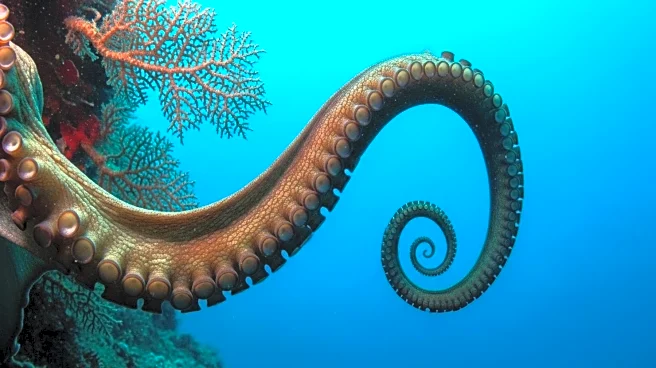What's Happening?
Researchers at the Marine Biological Laboratory and Florida Atlantic University have discovered that octopuses exhibit specific arm preferences when performing tasks in their natural habitat. By analyzing video footage, scientists found that octopuses predominantly use their front arms for exploration and their back arms for movement. This study fills a gap in understanding octopus behavior outside laboratory settings, providing insights into their complex arm usage.
Why It's Important?
The findings on octopus arm preferences have significant implications for the field of soft robotics, which aims to mimic biological systems for technological applications. Understanding octopus behavior can lead to advancements in robotics, particularly in medical and ocean exploration technologies. This research also contributes to the broader scientific knowledge of cephalopod behavior, enhancing our understanding of marine life and its potential applications in various industries.









